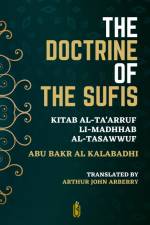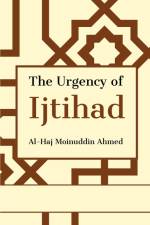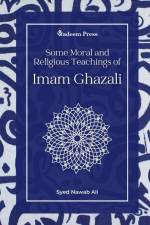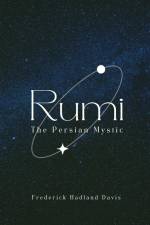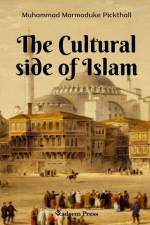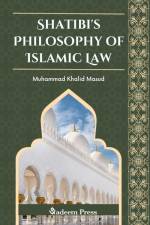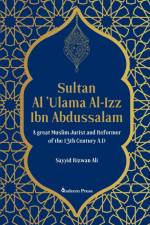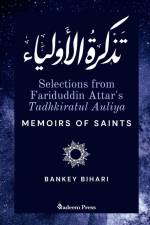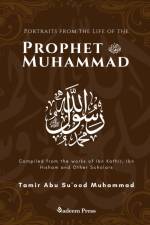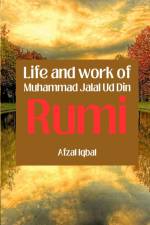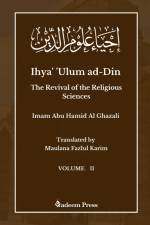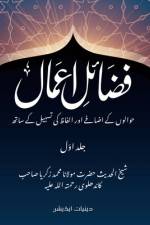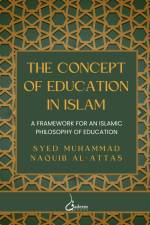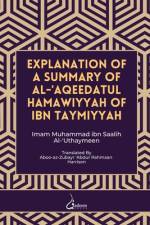av Abu Zakariya Yahya Al-Nawawi
531
Imam Muhiy al-Din Abu Zakariya Yahya ibn Sharaf al-Nawawi's masterpiece, "Riyad al-Salihin (Gardens of the Righteous)," stands as a renowned compendium of the Sunnah of the Holy Prophet (saw). Within its pages, the authentic sayings, actions, and approvals of Hadrat Muhammad (saw) have been meticulously recorded and organized into books and chapters, each centred around specific subjects and themes. Enriched with fitting Qur'anic verses at the outset and explanations elucidating intricate expressions after each hadith, this compilation draws primarily from the two Jami'Sahihs of Imams Bukhari and Muslim, as well as Imam Malik's Muwatta, among other esteemed sources found in the illustrious Sihah Sittah.The significance of this work extends far and wide, encompassing the diverse realms of Islamic teachings that span religious, social, political, cultural, and moral facets of human existence. It imparts guidance on Islamic laws related to commandments and prohibitions concerning:'Ibadat - Modes of Worship: Salat (prayer), Sawm (fasting), Zakat and Sadaqat (prescribed taxes and voluntary alms), Hajj (pilgrimage), Jihad (striving for the peace and welfare of Muslim society).Mu'amalat - Dealings and Transactions, alongside administrative matters.Hudud and Ta'zirät - Penal Codes.Tawba and Istighfar - Renunciation and Seeking Forgiveness.Kaffärät and Ad'iyah - Atonements, Votive Offerings, and Supplications.Circumstances of the Day of Resurrection and the Journey Before and After Death.In recognition of the work's paramount importance and precision, an English translation by the late Zafrullah Khan was published in Manchester, England, in 1975. However, this translation left readers dissatisfied for several reasons:a. Omission of Imam Nawawi's Explanations. b. Inadequate Conveyance of Chapter Titles. c. Elimination of Introductory Remarks Clarifying Hadith Themes.d. Neglect of Repeated Ahadith, with Only Mention of Numbers. e. Overlooked Arabic Text in Some Ahadith. f. Indistinct Rendering of 'al-Nabi' and 'Rasul Allah' as 'the Holy Prophet' without Differentiation.Fortunately, a second English translation by Mr. S.M. Madni, accompanied by the Arabic text, emerged in 1984 in New Delhi, India. Yet, like its predecessor, this translation also neglected to encompass all that Imam Nawawi provided as introductions to crucial chapters and explanatory notes augmenting the ahadith. Moreover, both works disregarded the internationally accepted system of Arabic name and phrase transliteration. Nevertheless, these translations contributed significantly to the present work's quality, for which we are profoundly grateful-Fal-hamdulillah!The current translation adheres faithfully to the idiomatic English usages, offering a literal rendition of Imam Nawawi's Arabic text. It distinguishes between 'the Holy Prophet' and 'the Messenger of Allah' in rendering 'al-Nabi' and 'Rasul Allah,' respectively, as unanimously understood by the Ummah. Repeated ahadith are retained with their respective serial numbers, and any discrepancies or omissions in names or nicknames of narrators have been rectified through meticulous research and collation. The Arabic text of Riyad al-Salihin has been critically edited based on three editions, ensuring accuracy and authenticity.


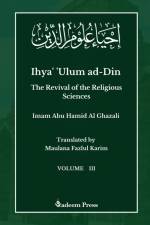
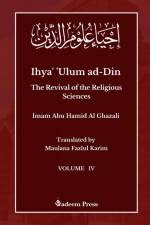

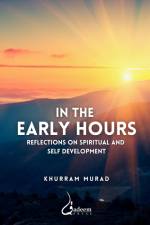
![The Life of Muhammad [Pbuh] af Muhammad Husayn Haykal](https://cdnbackdoor.tales.as/thumbnail/150x225/products/00281/67632/the-life-of-muhammad-pbuh.jpg)

